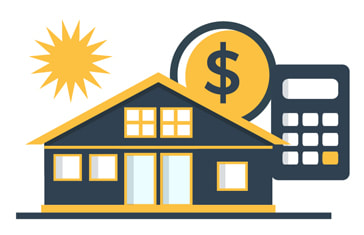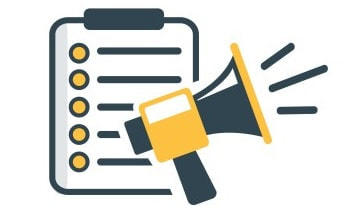Should you remortgage? How does it work?
Our guide explains the best (and worst) times to remortgage, what to consider and current mortgage deals currently available
Updated 29 January 2024
Signing the paperwork for your first mortgage was likely to have been a significant 'life moment'. However, the term you agreed to most likely had an expiry date for its fixed-interest rate, probably between two, three or five years. When that fixed-rate term ends, your lender will charge a floating interest rate. This may be above or below your current fixed-rate, depending on when you signed up for the first mortgage. If you want to minimise the interest costs and stay in control of your repayments, remortgaging to a new offer is probably your next step.
Know this first - people remortgage all the time
There are other benefits of remortgaging beyond a lower interest rate. Borrowers may remortgage their property to access their home’s equity, make home improvements, or in some cases, borrow to consolidate high-interest consumer debt. In this guide, we explain what a remortgage is, why you may want to remortgage, and what to look for before deciding on a lender. We cover:
Know this first - people remortgage all the time
- The important thing to know is that many borrowers feel as if they are trapped for the next 25 or 30 years with the same bank, even if other interest rates are cheaper and their home value has increased.
- The reality is that remortgaging is a normal process and part of everyday homeownership.
- All of New Zealand's banks offer the opportunity to remortgage, with rates so competitive that you can likely save money with a lower interest rate.
There are other benefits of remortgaging beyond a lower interest rate. Borrowers may remortgage their property to access their home’s equity, make home improvements, or in some cases, borrow to consolidate high-interest consumer debt. In this guide, we explain what a remortgage is, why you may want to remortgage, and what to look for before deciding on a lender. We cover:
What is a remortgage?
When you remortgage, you take out a new loan that pays off your existing mortgage. You can either do this with a fixed-rate mortgage or a floating rate mortgage. You can use a new lender or stick with your existing lender, although using a new lender usually offers the most savings. You can borrow the amount of your current loan or more based on the equity in your home. Borrowing on your home when remortgaging is common for anyone wanting settle debts, pay for renovations, access money for lifestyle needs (for example, buying a new car), or make home improvements (such as a new roof or driveway etc).
In this guide, we consider a 'remortgage' to involve switching to a new fixed-term loan (with a fixed interest rate valid for between one and five years). Such mortgages are offered by most banks and lenders. You may also wish to remortgage to a floating rate if you believe your circumstances will change in the short term, such as changing jobs or moving homes.
In this guide, we consider a 'remortgage' to involve switching to a new fixed-term loan (with a fixed interest rate valid for between one and five years). Such mortgages are offered by most banks and lenders. You may also wish to remortgage to a floating rate if you believe your circumstances will change in the short term, such as changing jobs or moving homes.
Who is eligible to remortgage?
Just like when you applied for your original home mortgage, you must qualify for the remortgage. You’ll need to answer basic mortgage application questions and provide proof of your income, assets, and employment to prove you can afford the loan. If you switch lenders, there may be further checks beyond the basics and this can take some time to process, and add extra costs. This can include home valuations.
What are the current remortgage interest rates?
Our guide to the Top 10 home loans is updated weekly and publishes the latest deals available to homeowners looking to remortgage. For most loans, there is a 20% minimum equity requirement, and application fees apply. You can decide to remortgage for any period between one and five years and lock in a fixed interest rate for that period. After that period ends, you can remortgage again.
The Most Common Reasons to Remortgage
Each borrower remortgages for a different reason; the most common benefit is to save money on interest costs. We have listed four of the most common reasons below:
Lock in a lower monthly mortgage paymentIf interest rates dropped since you took out your mortgage (and it's likely they have), you may be able to save a significant amount of money monthly and over the life of the loan. Before you remortgage to get a lower rate, make sure you understand the savings and consider increasing the monthly repayment amount to pay off your loan faster (and spend less on interest).
|
Borrow on your home’s equityNew Zealand has seen rapid house price rises in the last ten years. If you're latest QV valuation is well above what you paid for it, you will have increased your equity. This means you owe less than the home is worth; the difference between what you owe and the home’s actual value is the equity. You may be eligible to borrow that equity, using the money for any purpose. The amount you can borrow will vary by lender.
Caution: Borrowing on your home’s equity means taking out a larger loan. A larger loan means higher payments and more interest over the life of the loan. For this reason, borrowing on your home is a decision that needs to be made carefully. |
Renovating your homeIt's likely that you've got plans to remodel your home; extend the kitchen, build another bedroom or re-do the bathroom are all common home improvements. However, coming up with the $30,000 or $200,000+ it will cost isn't as easy to plan for. For this reason, if you need cash to renovate or repair your home, you may use your home’s equity to do it. This is like investing right back into your home as most repairs and/or renovations help increase your home’s value.
Like borrowing on the home’s equity, you must talk to the lender to see how much you can borrow above and beyond what you owe on your current mortgage. More borrowing means higher repayment costs, so this needs to be considered. |
Consolidating debtIf you have a large amount of personal debt with high-interest rates, you may want to consider borrowing on your home’s equity to pay it off. But be aware - you may be turning unsecured debt (such as credit cards) into secured debt (secured by your home). This means if you don’t make your payments, you put your home at risk of being repossessed by the bank and sold in a mortgagee sale.
But, consolidating debt can be less stressful since it combines all of your debt into one payment, but make sure you can afford the higher payment. While you may be able to get a mortgage for around 5% p.a. and avoid 20% p.a. loans and credit cards, you'll need to be able to make the repayments month after month. Over 15, 20 or 25 years, it can be much more expensive than short-term high-interest terms. For example, borrowing at 20% over five years is cheaper than borrowing at 5% over 20 years when you consider that the amount of interest you pay is a combination of the rate and the length of the borrowing:
Alternatively, consider a balance transfer credit card or debt consolidation loan to tackle personal debt. |
When Not to Remortgage
- If you're on a great mortgage deal already - if your interest rate is low, and can't be beaten, there's no need to re-mortgage unless you need to borrow on the equity of your home. You'll likely need to pay penalties to break the existing mortgage.
- If your home loan has costly penalties - if this is the case, it can be better to wait for the term to finish rather than face upfront costs
- Anyone with low equity, i.e. 10% or less of the property valuation - you’ll find it difficult to get the best new mortgage deals and remortgaging is best done with an experienced broker
- If your circumstances have changed - for example, you may have become self-employed or plan to move homes. If this is the case, it's best to stick with your existing mortgage until the term ends, and re-mortgage based on your needs.
- If you have a bad credit history - if you've missed payments, finding a new lender may be problematic. In such cases, it's best to talk to an experienced mortgage broker.
- If you have a small mortgage - if you have $25,000 or $50,000 left to pay, it may not make sense to remortgage. Instead, you can wait to pay off the balance at the floating rate your lender offers, knowing you can overpay without penalty.
Steps to Remortgage
It’s quick and easy to remortgage your loan once you've calculated the savings:
- Find a broker – If you are unsure about using your current lender, check with a mortgage broker. You’ll have access to numerous offers and the ability to choose the loan that is right for you. We've shortlisted top-rated mortgage brokers who go the distance for their clients in select cities around New Zealand: Auckland, Hamilton, Tauranga, Napier and Hastings, Wellington and Christchurch
- Get a pre-approval – Just like when you bought your home, find out what you can afford and at what rates/fees. This gives you a chance to decide if remortgaging truly is the right choice right now.
- Evaluate your break-even point – Make sure the mortgage makes sense and you don't have life events that may affect your mortgage. We don't suggest remortgaging only because interest rates have dropped. If you're likely to have a sum of money available in a few months, you may want to apply that to your mortgage and remortgage after that. Conversely, if you're paying 20% on credit card debt and personal loans, remortgaging and taking money out to pay off this expensive debt needs to be considered. In summary, invest the time in calculating your financial position and make sure you still come out ahead even if you’re taking out a larger loan to fix up your home or consolidate debt.
Related Resources
- If you’re trying to sort out your budget, our mortgage calculator can help
- How much can I borrow calculator
- Fixed vs Floating calculator (perfect for comparing the costs of a floating mortgage and a fixed deal)
- Loan amortisation calculator








